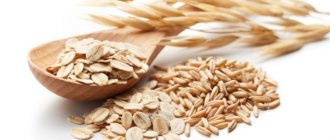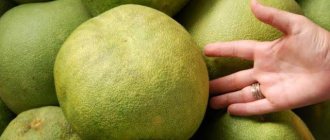Proper nutrition is of great importance in any trimester of pregnancy. A pregnant woman should eat dairy, meat and fish products, eggs, cereals, vegetables and fruits every day. Consumption of fruits helps improve the immune system and normalize the gastrointestinal tract. Apples, bananas, and oranges are very useful for women carrying a child. You shouldn’t give up exotic fruits either. They contain many elements that are necessary for both the woman and the baby. Mango is considered one such fruit.
Mango: vitamins and beneficial qualities
This fetus includes the following elements important for a pregnant woman:
- beta-carotene;
- vitamin A, B, C, D;
- potassium, calcium, zinc, manganese and phosphorus components;
- iron;
- cellulose;
- pectin.
Mannoheptulose, glucose, sedoheptulose strengthen human immunity and are considered strong antioxidants. The fruit can lower the temperature in hot weather and prevent the formation of cancerous tumors, especially in the pelvic area. Mango also helps with depression. It relieves tension, relieves stress, improves mood.
The fruit contains a minimal amount of calories and protein elements. In view of this, it can be eaten by those who want to lose weight. By combining mango with milk, it is possible to lose 2-3 kg in a short period. You can drink pieces of fruit with milk or make a smoothie. A smoothie is a drink that consists of pieces of fruit and milk mixed in a mixer.
Is it possible to eat mangoes during pregnancy?
A pregnant woman's taste preferences can change at lightning speed. Today she wants to eat fish, and tomorrow she wants to eat sweets all day. Often, during the period of bearing a child, the expectant mother develops a previously unremarkable craving for exotic fruits. Among them may be mango. In order not to harm her body and the body of the unborn child, a woman should know the benefits, harms and possible contraindications of this fruit delicacy.
Composition and beneficial properties of mango
Mango belongs to the sumac family. Externally, this fruit is red in color, but inside contains yellow or orange pulp. In terms of content, the exotic fruit is rich in the following substances:
- vitamins A, C, E, B, D;
- amino acids;
- sucrose;
- maltose;
- fructose;
- folic acid;
- calcium;
- zinc;
- magnesium;
- iron;
- phosphorus.
Mango contains a lot of easily digestible dietary fiber, as well as oxalic, citric and succinic acid. This fruit is a low-calorie product, so consuming it in sufficiently large quantities for expectant mothers will not affect excess weight. Eating at least one mango a day helps prevent diarrhea, constipation, anemia and hemorrhoids. In addition, the elasticity of blood vessels is significantly improved.
The rich composition of the exotic fruit slows down the development of cancer cells in the body and normalizes the functioning of the intestines and digestive tract. Mango fruits improve the functioning of the heart muscle and strengthen blood vessels. In general, this delicacy has a calming effect on the body and brings a lot of positive emotions, significantly improving mood.
Reference! For colds, mango is recommended to be consumed daily, as it kills pathogens and effectively removes them through the kidneys, improving water metabolism in the body.
What are the benefits of mango for pregnant women?
During the period of gestation, the expectant mother needs a full content of useful substances and vitamins in the body. Mango is rich in iron and helps prevent iron deficiency anemia, which is common in many pregnant women.
Vitamin A is extremely important for the prevention of intrauterine pathologies. It helps the placenta and fetus to develop properly, promote normal growth and development of all body systems. With sufficient intake of vitamin A into the body, a woman’s heart muscle becomes stronger and the walls of blood vessels become denser and more elastic. The vision of the expectant mother also improves.
Vitamin C is extremely important during the off-season, when the likelihood of colds and flu increases. If it is sufficiently present in the body, the expectant mother is not afraid of infections, since the immune system works at an excellent level.
Vitamin E has a noticeable effect on a woman’s mood, controls the level of hormonal surges, which makes her calm and balanced.
For your information! When eating mango, intestinal function noticeably improves, since fiber and dietary fiber perfectly stimulate its perilstatics.
The fruit also has a positive effect in the following areas:
- can help get rid of heartburn that torments a pregnant woman;
- activates metabolic processes in the body;
- improves memory and concentration;
- helps in the treatment of acute dermatitis;
- has antipyretic and anti-inflammatory effects;
- copes with colds and helps to avoid them;
- a beneficial effect is noted on the nervous system, the likelihood of stress and depression is reduced;
- helps with problems with the oral cavity, improves the condition of the gums, oral mucosa, and even fights scurvy;
- softens the symptoms of toxicosis.
Should pregnant women eat mangoes?
Mango is good for the body, however, consuming it can cause negative consequences. It is necessary to understand how often you can eat, and how it can harm the expectant mother/baby.
Benefit
The fruit contains many vitamins. Folic acid allows the child’s central nervous system to develop normally. The fruit provides replenishment of reserves of this substance. Vitamin A, which is present in mangoes, is necessary for the fruit to develop normally and metabolism to proceed correctly.
Mangoes contain many phenols, which are antioxidants. They provide suppression of the negative effects of free radicals. Digestion in pregnant women is often disrupted. Mango, thanks to the fiber and natural enzymes it contains, ensures stabilization of the gastrointestinal tract.
Harm
Mango is an unusual fruit for Russian conditions. You need to use it carefully, especially if you have not eaten it before. Sometimes it causes allergies. Include fruit in your menu gradually, start with small portions, monitor your own body’s reaction.
In terms of prevalence in tropical countries, mangoes can be compared to apples in Russia. The fruit is eaten both raw and canned. Weight can be 2 kg. On sale you can usually find smaller fruits.
The negative effect of the fruit can manifest itself in the form of diarrhea, various skin rashes, and abdominal pain. In this situation, you need to refuse the fruit, otherwise you can harm the child.
Be careful when choosing a ripe fruit. Unripe mango can cause stomach upset, mucosal irritation, or exacerbation of gastrointestinal diseases. You also need to carefully handle the peel of the fruit, which contains toxic resin.
Precautionary measures
Mango is an exotic fruit, and a pregnant woman’s body does not always cope with a new dish. When eating mango, an allergic reaction may occur. If after a piece of ripe fruit a rash appears on the skin, itching or burning, sneezing and coughing, you will have to refuse the treat. Expectant mothers prone to allergies should introduce mango into their diet in small portions and carefully monitor the body's possible reaction.
An important point: the likelihood of developing an allergy increases when eating mangoes with the skin. Pregnant women should not take risks. Before eating, mango fruits must be peeled.
Overconsumption of mango fruits can lead to irritation of the mucous membranes of the throat, stomach and intestines. Sweet and sour fruits are not recommended to be included in the diet for colds accompanied by cough and pain when swallowing. You should not get carried away with mangoes if you have gastritis, colitis and other diseases of the digestive tract in the acute stage.
In the early stages of pregnancy, fresh fruits can increase the manifestations of toxicosis. Once in the stomach, the sweet and sour mango juice irritates the mucous membrane and provokes the development of unpleasant symptoms. If nausea and vomiting occur after eating mango, you should discard the treat. In the second trimester of pregnancy, after toxicosis subsides, you can again include mango in your diet.
Which type of mango is best: canned, fresh or juice?
The juice has almost all the beneficial properties that the fruit has.
However, fresh fruit is still healthier than the juice that is prepared from it. Juice contains too much sugar, which can lead to weight gain and is especially harmful for people with diabetes. Also, do not forget that the pulp ensures the normalization of the digestive process. It is undesirable to miss such a useful property. Eat the fruit fresh; it is not necessary to juice it.
Separately, it is worth mentioning about canned mango. Such a product is devoid of many useful components that make up fresh fruit. However, there are still certain benefits from its use, but they are not commensurate with the benefits of fresh fruit.
Method of use
The daily intake of mango is 1 ripe fruit per day. If it is well tolerated and there is no pathology in the digestive tract, you can eat 2 small fruits. You can eat the mango whole or cut it into slices, dividing the portion into several snacks throughout the day.
Fresh fruits are the best choice for a pregnant woman. Mango can also be consumed in the form of candied fruits, jam or preserves. Ripe fruits are included in many salads and snacks. Mango fruits are used to prepare various desserts.
A pregnant woman will benefit from freshly squeezed mango juice (with good tolerance and normal functioning of the gastrointestinal tract). You can also make a delicious vitamin cocktail from mangoes by adding lemon or lime juice. Mango drinks are best drunk chilled, before meals or half an hour after meals.
How to choose a ripe mango
A ripe fruit should be slightly soft to the touch, like an avocado or peach.
The pulp should respond to pressing by the appearance of small depressions. However, the fruit should not be too loose. If you intend to store the fruit for several days, buy mangoes with a hard peel.
Pay attention to what the fruit looks like. The optimal shape is the shape of an American football ball. Buy fruits that are plump and as round as possible. It happens that there are a couple of brown dots or spots on a ripe fruit. This is completely normal.
Avoid buying flat and thin fruits. Most likely, they are not very tasty, have a small amount of pulp and a lot of fiber. Do not choose fruits with wrinkled skins; they will no longer ripen. Please note that Atalfa mangoes are quite soft and wrinkled to the touch before ripening.
Ripe fruits always emit a strong, sweet fruity smell. Mango contains quite a lot of sugar. Because of this, it is prone to fermentation. A sour wine aroma indicates that the fruit is overripe. Such fruit has definitely gone bad and should not be eaten.
Judging the ripeness of a fruit by color is not the best method for selecting mangoes. The color of ripe fruit depends on the variety, season and growing conditions.
In order not to be disappointed and not to waste your own money, be careful when buying fruits. Please keep the following recommendations in mind. Please note that an unripe mango can ripen if stored in warm conditions, while an overripe mango can never be eaten.
Pregnant women can eat mangoes. Exotic fruits supply the body with carotene, which is necessary during pregnancy, as well as other useful microcomponents. However, in everything you need to observe moderation, and eating mangoes is no exception.
Mango during pregnancy: how healthy is this exotic delicacy?
The benefits of vegetables and fruits during pregnancy have been discussed many times. But are all fruits equally healthy? Sometimes a pregnant woman’s tastes are specific, which is due to the body’s need for increased doses of vitamins and microelements. Mangoes often become an object of desire, even if there was no particular craving for it before.
But don’t rush headlong to the store to satisfy your desires. This fruit is exotic, so the body’s reaction to it may be negative, which will affect the health of the mother and her baby. To understand whether mango is ok during pregnancy, let’s consider what this fruit is, how it can be useful and harmful.
General information about the fruit
Mango is definitely a delicious fruit. It has an oval shape, and its flesh is aromatic, soft and juicy. The skin of the fruit is smooth and has a reddish-yellow or yellowish tint. The mango is native to India, where it is called the “king of fruits.” In our country, the fruit is exotic; it is added to various dishes or eaten raw.
Mango contains a large complex of vitamins and microelements that are necessary not only for pregnant women. Moreover, their content is great. It’s not for nothing that it is also called a delicious medicine.
Table 1. Vitamin composition of mango
| Name | Quantity |
| A | 0.39 mg |
| B1 | 0.06 mg |
| B2 | 0.06 mg |
| PP | 0.6 mg |
| B5 | 0.16 mg |
| B6 | 0.13 mg |
| B9 | 14 mcg |
| C | 28 mg |
| E | 1.12 mg |
1) What are the benefits of raisins during pregnancy?
Tips for choosing quality raisins. 2) We talked about the treatment of worms with folk remedies here. The product contains amino acids, sucrose, glucose, folic acid, iron, zinc and other trace elements. Moreover, a number of amino acids contained in the fruit enter the human body only with food.
Table 2. Mineral composition of mango
| Name | Quantity |
| K (potassium) | 156 mg |
| Ca (calcium) | 10 mg |
| P (phosphorus) | 11 mg |
| Mg (magnesium) | 10 mg |
| Na (sodium) | 2 mg |
| Fe (iron) | 0.13 mg |
| Cu (copper) | 110 mcg |
| Zn (zinc) | 40 mcg |
| Mn (manganese) | 27 mcg |
| Se (selenium) | 0.6 mcg |
The benefits and harms of mangoes during pregnancy
To understand whether mango can be eaten during pregnancy, it is necessary to consider in detail what benefits and harm it can cause, as well as possible contraindications.
Beneficial properties of the fruit
The beneficial properties of mango during pregnancy are due to the large amount of vitamins and microelements it contains, which are necessary for the body of the expectant mother:
- Iron. Iron deficiency anemia is one of the common ailments of pregnant women. And it can pose a danger not only to the mother’s body, but also to the child. Regular consumption of mangoes is a preventive measure against this disease, reducing the risk of its development;
- Vitamin A. It affects the mother’s vision and the health of her skin. The use of this vitamin minimizes the risk of developing various intrauterine pathologies of the fetus;
- Vitamin E. Affects the health of the skin and is involved in regulating the amount of sex hormones. The latter affects not only a woman’s well-being, but also her mood;
- Vitamin C is the most important vitamin involved in normalizing the functioning of the immune system. This is especially important during seasonal colds and flu;
- Cellulose. Indispensable for proper bowel function. During pregnancy, cases of constipation are common, and mango will help avoid it.
Mango has a beneficial effect on the nervous system of a pregnant woman. This prevents the development of stress. The calorie content of the product is low, so you can enjoy the fruit without fear for your figure.
It is important that one mango contains the daily requirement of glutamic acid. It improves memory, concentrates attention and is involved in the regulation of many metabolic processes.
The kernel of the fetus contains the trace element mangosteen, which is also useful for a pregnant woman. The effectiveness of mango has been confirmed in the treatment of acute dermatitis and heartburn, which often torments, especially in recent months.
What harm can mangoes cause?
As previously stated, this fruit is exotic. Therefore, the likelihood of developing allergic reactions is very high. If previously mango fruits were rarely eaten, then it is advisable to eat a small piece to monitor the reaction to the product.
It is strictly forbidden to eat unripe fruits. This can cause irritation in the throat and lead to the development of gastrointestinal diseases.
You should not eat a lot of mangoes at once. Otherwise, there will be an excess of vitamin A in the body, which is simply unacceptable during pregnancy. A kilogram of this fruit per day can lead to colic and diarrhea.
Eating mango is strictly contraindicated in the following cases:
- For ulcers of the digestive tract;
- If you are prone to allergies.
It is undesirable to consume the fruit with the peel, as harmful substances accumulate in it. It is better to clean it with gloves to prevent irritation on the skin.
So is mango good for pregnancy or harmful? In fact, it depends on the individual characteristics of the body. In any case, even if no allergic reaction is observed, you should not eat too much of it.
1) Why beets are useful during pregnancy: we consider the root vegetable in detail. 2) What are the types of runny nose in infants, read in this article.
After all, if this fruit is abused, even a woman who is not carrying a child under her heart may experience health problems. A moderate amount of it will strengthen the expectant mother’s immunity, calm her nerves, protect herself from anemia and give birth to a healthy baby.
Contraindications for eating mango
Exotic tropical fruits are not so common in our region that they can be consumed daily.
You can enjoy mango a couple of times a week, even if you have chronic diseases. If you decide to consume the fruit daily, you should familiarize yourself with the contraindications. First of all, you need to ensure that the fruit is ripe. Unripe mango has firm greenish flesh. If you eat this fruit, it can irritate your throat and cause indigestion. Mangoes are high in vitamin A, which is beneficial during pregnancy. But at the same time, an excess of this vitamin can lead to the risk of miscarriage or premature birth.
Be aware that vitamin A may be in the multivitamin you take. In this case, in combination with the fruit, the body will be oversaturated with vitamin A. If you do not take additional vitamins, only one kilogram of mango per day is acceptable. In addition, mango can cause allergies - it is a rather unusual fruit. If you are eating a treat for the first time, monitor your body's reaction. You also need to do an allergy test before external use of a mask based on the juice and pulp of the yellow fruit.










